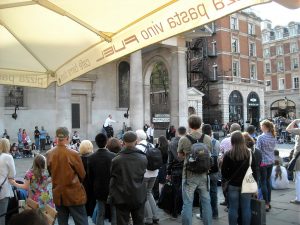 2 Chronicles 17:1-19
2 Chronicles 17:1-19
Jehoshaphat had a desire to teach his people (17:7-9). This desire caused him to take action. He did not simply have a dream, but he took practical steps to see it become a reality. A lot of local churches have dreams to reach people with the gospel. But they rarely see much accomplished. There are many reasons for this failure, but one is that there far more talk (in board meetings, committee meetings, and business meetings – I think there is a recurring noun there) than action. And if something doesn’t immediately “work”, they have more meetings to discuss the need for a new plan! Jehoshaphat did not fall into a swamp of inactivity. He acted.
- He sent a team of teachers (five officials, nine Levites, and two priests) on an extensive tour throughout Judah. At least part of this plan came from the Torah (Leviticus 10:11). Ezra later followed this plan. Priests were to be the source of spiritual instruction (cf. Malachi 2:7). Who are the priests today? Believers in Jesus Christ are priests (1 Peter 2:5; etc.) under Jesus our Great High Priest. So then, you and I need to be the source of wisdom and knowledge of God and the gospel to those around us. Don’t try to wiggle out of this. Yes, you can do it. You have the Holy Spirit and God’s Word, the Bible. Most of you reading this blog have heard many messages and Bible lessons. You ought to be able to open the Gospel of Mark or the letter to the Romans and explain Christ and the good news to others. If you think you can’t, contact me and we’ll talk about this, okay?
- Jehoshaphat knew that people need to have God’s message explained to them. People usually really learn through some kind of conversation, and I’m not downplaying the formal teaching and preaching of the Word. I’m teaching now. We all need general, public instruction. Every local assembly needs this to keep a unified vision. But we also need a place to ask questions and bounce our ideas about what we’re hearing off of others. His team of teachers would be able to meet that practical, spiritual need. They could gather people together in a circle around a fire or a basket of bread and so teach and answer their questions.
Comment: Your small group ought to function this way. The purpose of a small group is not to be a “Bible study” doing a mad dash through a book or topic, just to say that they finished the material. The time you cover just one question or one verse, discussing it together in love, might be the most effective learning situation you have ever had. If people are asking good, meaningful questions and receiving the same kind of answers, not just yakking or gossiping about something, then keep in step with what the Spirit is doing. Everyone in a gospel community must have a sense of spiritual flexibility.
- They took the word with them. The Book of the Law means at least Deuteronomy or the entire Torah, and perhaps other Scripture then available. From God’s Word, they could present the central story of God’s glory, the need for a Redeemer, and his amazing grace for sinners who repent and believe. Learn the main story line of the Bible, and be able to apply it to the walk of faith. Remember it is about Jesus Christ (Luke 24:44-47).
God honored Jehoshaphat for his devotion (17:5, 10). God sticks to his purposes, or as is usually said, he keeps his promises. Consider 1 Samuel 2:30. God has revealed that about himself. He honors those who honor him. Jehoshaphat did, and so God honored him. Jehoshaphat sought to keep the law covenant, so the Lord protected him and his people during his reign (Deuteronomy 28). At this point, we must understand that we relate to God through the new covenant. During this life, he does not promise his adult sons and daughters physical prosperity, but he does promise his presence and the help of the Holy Spirit to fulfill our heavenly calling. This is one reason the new covenant is the better covenant!
Remember that Jehoshaphat could not do it alone (17:7-9). He formed a team to help him in the work. Each of us in our local assemblies must work together in gospel partnership in the areas God has placed us. Followers of Christ do mission together. How can you join with others to expand the ministry of the word where you live?
The most important factor was that the Lord was with Jehoshaphat (17:3). Anything accomplished that is truly godly and lasting comes from the action of the Spirit of the Lord. The Holy Spirit lives in God’s people today. Those who know the Lord can say, “the Lord is with us”. That is something to rejoice about! We have what the early church had: The Spirit and the Word. Let’s seek out new opportunities to act for the Lord this week!
Grace and peace, David

 Hebrews 10:25
Hebrews 10:25 Romans 12:3-8
Romans 12:3-8